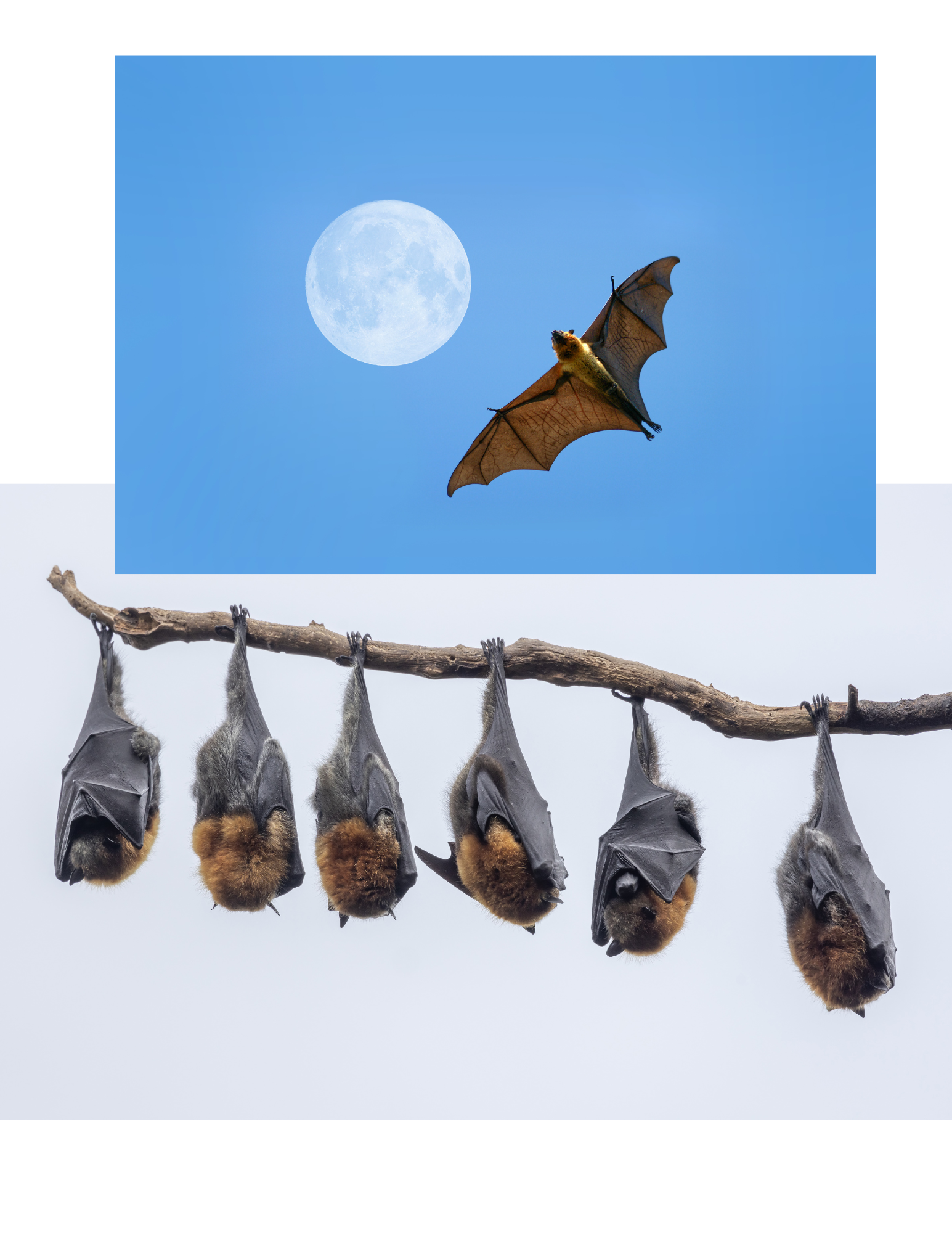BATSIn your Home
If you have a bat in your home, leave it be and give us a call right away, no matter the time or day. Bat emergencies are our top priority!
To ensure the safety of your family and pets, if any contact was made, we can submit the bat to a state run health lab to get tested for rabies and other diseases.
We Love Bats
While bats do not belong in your home, and should always be handled with extreme caution, they are some of the most incredible creatures.
The only flying mammel, bats are vital to our ecosystem. Some can eat up to their weight in insects in one night, saving you from a lot of mosquitos bites! Bats are also massive pollinators, like beloved bees, some species even distribute seeds. Bats are prey to other animals, taking part in the circle of life, and their feces is a natural fertilizer rich in nitrogen, phosphate and potassium. Bats use echolocation to navigate and find food in the dark, which is extremely unique. They are also agile fliers because of their flexible skin and movable joints, similar to humans.
The benefits of bats far outweigh the problems you may have with them, most of which we can help you with.
Maine Bats Species
Hibernating bats
Big brown bat (Eptesicus fuscus)
Little brown bat (Myotis lucifugus)
Northern long-eared bat (Myotis septentrionalis)
Eastern small-footed bat (Myotis leibii)
Tri-colored bat (Pipistrellus subflavus)
Tree bats
Hoary bat (Lasiurus cinereus)
Silver-haired bat (Lasionycteris noctivagans)
Eastern Red bat (Lasiurus borealis)
Convservation & State Protections
Bats are a protected species in the state of Maine and are consistently being surveyed by state officials and biologists throughout the year, to better understand their population trends. A few regulations that must be followed include not disturbing maternity roost trees or hibernacula (a shelter where bats hibernate, for instance; a cave) from October 1 through April 30 each year. During maternity season in June and July, bats cannot be excluded from unoccupied buildings. which does not include your home.
In Maine, bats live in a variety of habitats including wetlands, ponds, forests, fields, and even mountain slopes. If you are curious how you can help the species thrive, consider minimizing pesticide use since all eight species in Maine, eat insects to survive. Another great option is to buy or build a bat house, to provide an alternative shelter away from your home. We are happy to discuss this with you.



